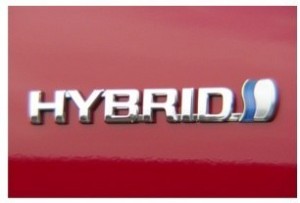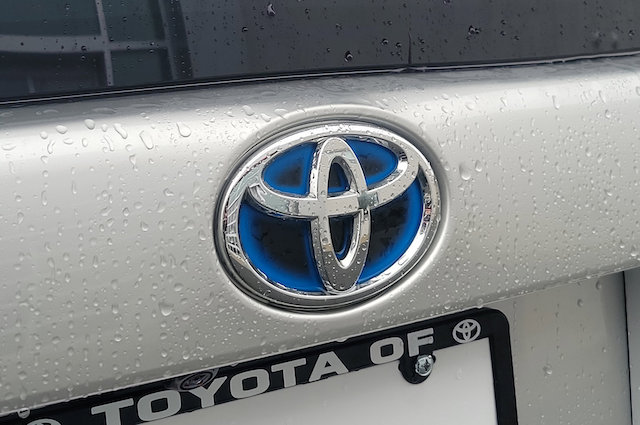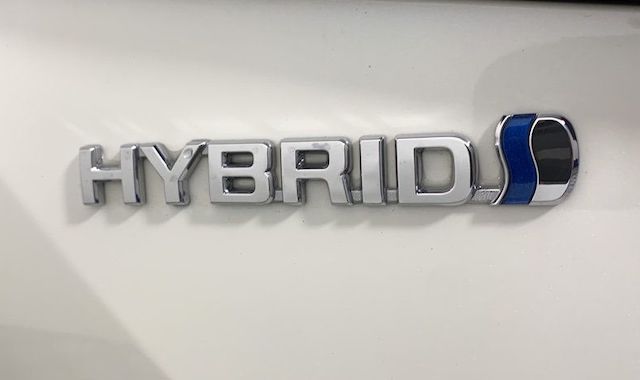 Hybrid vehicles, including cars and SUVs, have become increasingly popular due to their excellent fuel efficiency without sacrificing performance. Many drivers now consider a hybrid as their ideal next vehicle. However, with so many hybrid options available, choosing the right one can feel overwhelming.
Hybrid vehicles, including cars and SUVs, have become increasingly popular due to their excellent fuel efficiency without sacrificing performance. Many drivers now consider a hybrid as their ideal next vehicle. However, with so many hybrid options available, choosing the right one can feel overwhelming.
To simplify your decision-making process, let's break down the different types of hybrid technologies and explore when a hybrid might be the best choice for you.
Types of Hybrid Vehicles
Today, there are multiple hybrid options available, each offering unique benefits. If you’re unsure which type of hybrid you currently own, check your vehicle's owner manual. Here are the three most common types:
- Mild Hybrids (MHEV): These use a smaller electric motor and battery to assist the internal combustion engine (ICE). The electric motor helps with acceleration and powers auxiliary systems like air conditioning and power steering. The battery is recharged through regenerative braking or the alternator. Mild hybrids provide limited electric assistance but are typically the most budget-friendly option.
- Self-Charging Hybrids (Full Hybrids): Also known as full hybrids, these models have larger batteries and electric motors capable of powering the vehicle for short distances on electric power alone. Like mild hybrids, they recharge through regenerative braking and can support auxiliary systems. Full hybrids strike a good balance between cost and performance. Most Toyota hybrids fall under this category.
- Plug-In Hybrids (PHEV): These hybrids boast the largest battery packs and electric motors, allowing for extended electric-only driving ranges—up to 80 miles or more. Plug-in hybrids require charging from an external power source, which enhances their efficiency for shorter trips. Some models combine both gas and electric power for added performance. While plug-in hybrids are the priciest option, they offer exceptional fuel economy for frequent short commutes. However, owning a PHEV means ensuring access to a charging station at home or work, as neglecting to charge will significantly impact overall efficiency.
Choosing the Right Hybrid Vehicle

Selecting the perfect hybrid vehicle depends on your specific needs. Toyota, a pioneer in hybrid technology since 1997, offers a diverse lineup of 14 electrified models. Whether you need a compact car or a spacious SUV, Toyota has something for everyone.
Consider Your Space Requirements
For families, the Toyota RAV4 is an excellent choice. Available in both PHEV and self-charging versions, it provides ample room for five passengers. If you need more seating, the Toyota Sienna MPV accommodates up to eight people. On the other hand, the Toyota Prius and Corolla are ideal for those who prioritize sportiness over space. Other Toyota hybrids include the Camry, Crown, and Highlander.
Compare Fuel Economy Figures
While hybrid vehicles often carry a higher price tag compared to traditional gas-powered models, the difference isn't always significant. For example, the hybrid version of the Toyota Corolla costs only $1,250 more than its gas counterpart but delivers up to 50 mpg in mixed driving conditions. In contrast, the standard Corolla achieves around 35 mpg. Over time, the savings from improved fuel efficiency can offset the initial investment.
For urban drivers who frequently travel short distances, the hybrid's advantage becomes even more pronounced. The hybrid model can achieve 53 mpg, far surpassing the standard car’s 32 mpg. Plug-in hybrids, though pricier upfront, offer the highest fuel efficiency, while full hybrids strike a middle ground with shorter electric-only ranges.
Think About Warranties and Maintenance Costs
All Toyota hybrids manufactured since 2020 come with a 10-year/150,000-mile warranty for the hybrid battery. Earlier models still enjoy an 8-year/100,000-mile warranty. Toyota hybrids maintain the same reliability as conventional models, though some may incur higher servicing costs. Research thoroughly before purchasing, and remember that certified pre-owned Toyotas include warranties, with many available with maintenance plans.
Should you ever need genuine OEM parts, Olathe Toyota Parts Center is here to assist. Our OEM parts are covered by the standard Toyota 12-month, unlimited mileage warranty.
When Is a Hybrid the Best Choice?

- You frequently take short trips.
- You aim to reduce running costs.
- You seek a balanced mix of performance and economy.
- You require the versatility of both gas and electric drivetrains.
Hybrids make practical sense in most daily driving scenarios, offering smoother, quicker, and more efficient performance than gas-only alternatives. Even older Toyota hybrids deliver impressive fuel economy. When you need parts for your hybrid Toyota, Olathe Toyota is just a phone call away. With over 15 years of online sales experience and a vast selection of OEM Toyota parts, we can ensure your hybrid stays on the road for years to come.
Â
Related Articles
As the world moves toward sustainable transportation, hybrid vehicles stand out as a practical solution for modern drivers. Whether you're looking to save money, reduce emissions, or simply enjoy a more refined driving experience, hybrids offer numerous advantages. With Toyota leading the way in hybrid innovation, the future of motoring looks brighter—and greener—than ever.
Precision Cast Parts,Carbon Steel Casting Parts,Precision Casting Parts Of Carbon Steel,Precision Casting Parts Of Ss Steel
Ningbo Yinzhou Leisheng Machinery Co.,Ltd , https://www.nblscasting.com

 Is A Plug-In Car Right For You?
Is A Plug-In Car Right For You?
 The Top 5 Green Driving Tips
The Top 5 Green Driving Tips
 Are Electric Vehicles The Future?
Are Electric Vehicles The Future?
 Scion iQ Micro-Subcompact
Scion iQ Micro-Subcompact
 2011 Toyota Prius Ships To Select Cities And Businesses
2011 Toyota Prius Ships To Select Cities And Businesses
 Our Favorite 2013 Toyota Models
Our Favorite 2013 Toyota Models